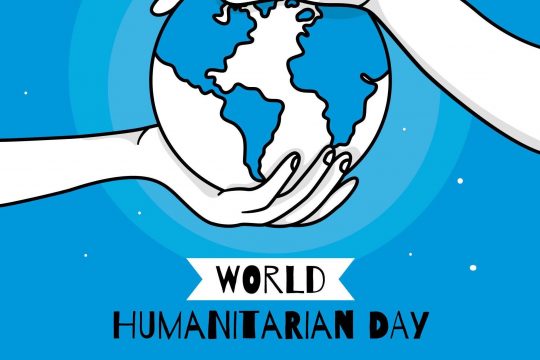
APP Phase 3
About APP
The Asian Preparedness Partnership (APP) is a unique multi-stakeholder regional partnership established by its founding member countries, which include Cambodia, Myanmar, Pakistan, Philippines, Nepal, and Sri Lanka. Formed in 2017 with technical and secretariat support from the Asian Disaster Preparedness Center (ADPC) as well as assistance from the Bill & Melinda Gates Foundation (the Foundation) and the United States Agency for International Development Bureau for Humanitarian Assistance (USAID BHA). Its goal is to achieve ‘‘safer and well-prepared communities through locally-led disaster risk management (DRM) actions so that disaster impacts on at-risk communities of Asia will be reduced”.

APP strives to improve stakeholder coordination and dialogue between governments, local humanitarian organization networks, and the private sector to enhance capacities through partnerships, knowledge resources, training, and networking opportunities. The APP serves as a network of networks connecting these key local actors working on emergency response and disaster risk management at the national and sub-national levels for a more coordinated and effective response at the time of disaster. It promotes locally led disaster preparedness, response, and recovery actions through improved coordination mechanisms, strengthened humanitarian leadership, training and capacity development, systems transformation, innovation, South-South learning and knowledge exchange, and regional cooperation.
The APP’s efforts contribute to priority 4 of the Sendai Framework for Disaster Risk Reduction (SFDRR) 2015-2030 for ‘enhancing disaster preparedness for effective response.’
Consolidating Success
Building on the achievements of APP Phase 1 for co-creation and mobilization (2016 -2019), Phase 2 (2019 -2023) focused on implementing multi-stakeholder partnerships and expanding to countries such as Lao PDR and Bangladesh through the APP+ approach. The APP Phase 3 will take this momentum forward. It will focus on consolidating and sustaining the country and the regional partnerships for their sustainability and leveraging support internally and externally for further scaling up and scaling out of its model approach.

Figure‑1 Progression of APP from Phase 1 to 3
Key impacts of APP
Over the past five years, the APP has achieved several milestones, including:
- Improved multi-stakeholder coordination through partnerships between governments, NGOs, and the private sector.
- Strengthened coordination mechanisms via joint simulations, assessments, and response operations.
- Enhanced capacity of local actors through mainstreamed capacity development programs.
- Increased integration of humanitarian standards and tools among local actors.
- Improved advocacy for localization through knowledge exchange and learning between countries.
- Nurtured innovative approaches for locally led disaster risk management (DRM) actions.
- Expansion of the APP model to include Lao PDR and Bangladesh.

APP Phase 3 Approach
The primary outcome of APP Phase 3 is to consolidate and sustain the multi-sectoral partnership model at regional, national, and sub-national levels to prepare for, respond to, and recover from disasters. By fostering a ‘whole of society’ approach and strengthening cooperation between governments, NGOs, and the private sector, the APP seeks to empower communities and improve disaster response capabilities.
The primary outcome will be achieved through three main workstreams, which will form the building blocks for the three main pillars of the APP Phase 3 framework, as indicated below.
- Pillar I: Local Preparedness: This pillar focuses on developing localization models at the subnational level, with an emphasis on gender equality and social inclusion.
- Pillar II: National Partnerships: Aims to strengthen partnerships between government, NGOs, and the private sector at the national level, ensuring sustainability and coherence in disaster preparedness efforts.
- Pillar III: Regional Engagement: Seeks to consolidate regional cooperation further, establish readiness funds, and enhance knowledge exchange within and beyond the region.
Geographical Focus
The APP Phase 3 will consolidate multi-stakeholder localization models in Cambodia, Lao PDR, the Philippines, Nepal, Pakistan, and Sri Lanka. It will also reach out to countries such as Bangladesh, Indonesia, Timor Leste, and Maldives through APP + Approach.

Figure‑2 APP Partner countries




